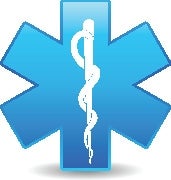The University of Massachusetts Medical School (UMMS) has received a $7.5 million grant to help fight Ebola in Liberia, the school announced Thursday.
The money will fund an academic medical team from UMMS to provide relief efforts in Liberia, bringing doctors and nurses there to care for patients and provide training and medical supplies, according to a story by the UMMS communications office.
The latest funding will build on ongoing efforts the school has pursued in Liberia, which include nurse and physician education and training. Most recently, UMMS and clinical partner UMass Memorial Health Care have collected and delivered two shipments of personal protective equipment to West Africa since the current Ebola outbreak began.
“This collaboration capitalizes on the strong partnerships and relationships that UMMS and its academic partners have developed in Liberia to provide a multifaceted, cohesive response to the Ebola virus outbreak, and to provide critically needed routine health care to the people of Liberia,” said Dr. Katherine Luzuriaga, director of the UMass Center for Clinical and Translational Science, in a statement.
A team of UMMS faculty members applied for the grant from the Paul G. Allen Family Foundation, a Seattle-based philanthropic organization which recently committed at least $100 million to the Tackle Ebola campaign.
Through the Academic Collaborative to Support Health Care Education in Liberia, Dr. Patricia McQuilken, associate professor of pediatrics at UMMS, and Dr. Michelle Niescierenko, an emergency pediatrician and director of the Global Health Program at Boston Children’s Hospital, will head up Ebola relief efforts, UMMS said.
Dune Ives, senior director of philanthropic initiatives for Vulcan Inc., the umbrella corporation that includes the Paul G. Allen Family Foundation, was quoted by UMMS, saying the grant “will provide immediate relief on the ground through the provision of emergency medicine physicians, infectious disease specialists and disaster management teams to work with NGOs and provide expanded capacity for care at Ebola treatment facilities.”
The current Ebola outbreak in West Africa is the largest in history, and the World Health Organization has warned that there could be as many as 10,000 new cases per week if the outbreak is not reversed through increased relief efforts from the international community.
According the U.S. Centers for Disease Control, there have been just shy of 10,000 suspected cases of Ebola, and about 4,900 deaths.

